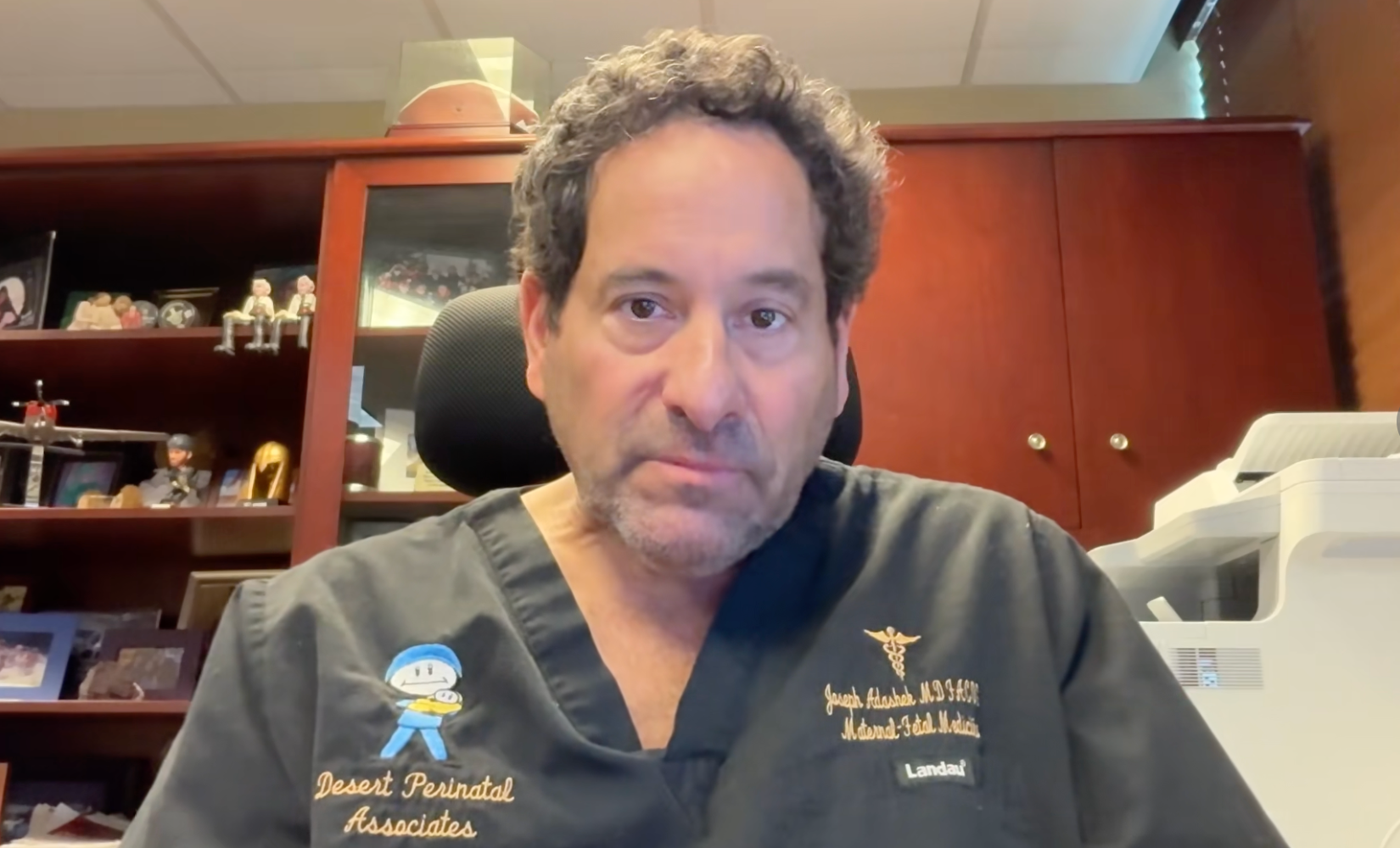During her 18-week baby scan, Blanca and her husband watched anxiously as the sonographer spent 10 minutes searching for signs of life. “I could tell there was something wrong,” she recalled of that late-August scan.
“She took the ultrasound wand off my stomach, and she was like, ‘I'm sorry, but there's no heartbeat.’” Blanca, 38, whom The Independent is only identifying by her first name to respect her privacy, was heartbroken.
Already trying to come to terms with the loss of her baby, whom she had named Jonah — the product of her last viable embryo implant after going through the grueling process of in vitro fertilization — the mom was then dealt a cruel second blow two days later.
Aetna, Blanca’s health insurer, denied her coverage for a stay in the hospital so she could be induced and deliver Jonah. The decision resulted in delays that meant the grieving mom had to carry her dead, 4 1/2-month-old son for an agonizing seven days.
“I felt so defeated. I've already lost my baby, and now this,” Blanca told The Independent through tears. “How much more heartache am I gonna have to go through? Where’s the humanity?”
The back and forth with Aetna and the bureaucratic details involved in getting Blanca booked into the hospital meant Jonah wasn’t delivered until Sept. 5, according to Blanca, her physician and documents reviewed by The Independent
Further adding to her trauma, the mom bled profusely and almost died when her uterus ruptured and Jonah, her dead son, had to be delivered via emergency c-section.
“I have never felt that type of pain in my entire life,” the Nevada mom said. “I felt like I was going to die.”
After being told the gut-wrenching news that Jonah had no heartbeat, Blanca’s options, aside from waiting to give birth naturally, were to induce labor or undergo dilation and evacuation (D&E), the same procedure used for a late-term abortion. She wanted an induction so that she could hold Jonah in her arms and say goodbye.
Her physician, Dr Joey Adashek, a high-risk pregnancy specialist, was shocked when Aetna initially denied to cover Blanca’s stay in the hospital.
Adashek said the denial was “one of the most egregious” he has seen in his more than 20-year career and also called the insurance company out on TikTok.

“So for the first time in my career, the insurance company denied both of them,” Adashek says in the video. “Denied induction of labor and denied the surgery, which begs the question, how are we going to get the baby out?”
“I told my office, ‘we need to fight this,’” Adashek told The Independent. “She's traumatized, and she has to sit there with a dead baby. It's her last chance to have a healthy baby of her own and she just has to sit there and wait because of the insurance company. Isn’t that crazy?”
Adashek’s team at Desert Perinatal Associates in Las Vegas appealed the decision and urged Aetna to reconsider, a process that can take up to 14 days.
When approached by The Independent for comment, an Aetna spokesperson said its “ability to resolve coverage disputes based on the best available medical evidence hinges on physician partners sharing vital information in a timely manner.”
“In [Blanca’s] case, the procedure itself was covered, but the hospital stay was initially not approved based on the information provided by her physician,” the spokesperson added.
In response to Aetna, Adashek told The Independent that he stood by his version of events.
“I have seen Aetna patients for more than 25 years and this is the first time they declined authorization for this procedure,” the physician maintained.
Aetna did finally give the go ahead on Sept. 2 after Adashek conducted a peer-to-peer review, a standard bugbear for doctors because the “peer” on the other end of the line is often not someone in the same specialist field.
The review is a discussion between a physical and a doctor tied to the insurance company. The American Medical Association denounced the process as “a barrier to care” in a 2021 Council on Medical Service report.
Adashek said his review was conducted with a nurse and the phone call was brief. The nurse informed him that the induction and the hospital stay had been approved, before she hung up on Adashek, he claimed.
The Aetna spokesperson claimed the peer-to-peer call “took place at a time specified by her physician.”
“He shared new clinical information that enabled us to quickly approve her hospital stay,” the spokesperson added.
In response to Aetna’s statement, Adashek claimed “not one question was asked” of him by the nurse during the peer to peer discussion.
“She never asked one further question about the clinical situation and I never volunteered with any information,” Adashek said. “She told me that ‘it was approved’ and that was pretty much the extent of the conversation.”
Once finally approved, the earliest the hospital could book Blanca in to be induced was the evening of the following day on Sept. 3, however the labor and delivery unit was too busy.

Her treatment was pushed back another day until Sept. 4, when she was induced, a procedure that can take between 12 to 24 hours, sometimes more.
Then, on Sept. 5, after the process was underway, things went horribly wrong.
The mom suffered a ruptured uterus, a rare obstetrical emergency where the uterine wall tears open, that almost claimed her life. Doctors said she lost nearly 2 liters of blood.
“I was bleeding out,” Blanca recalled.
She was placed under anesthesia and doctors worked for two hours to deliver her deceased baby.
Physically exhausted and mentally drained, the mom was bewildered when she came to, and had to undergo more tests before she could finally hold Jonah. She was transferred to a special room where she could spend time with her child.
“Finally, I get to hold my baby,” Blanca said. “I hold my baby. I spend all day in that one room with my baby.”
Blanca is speaking out about her experience two months later because she is so “angry” about what happened.
“A week after [the surgery] the insurance has the audacity to call me and ask me if they if there's anything they can do to help me,” Blanca said. “Oh my God, are you freaking for real?”
“For them to think that this was OK — it's not,” Blanca added.
Because of her recent traumatic experience in the hospital and being a high-risk patient, doctors have advised Blanca that if she fell pregnant again, the birth would likely be dangerous. She was already a high-risk patient because as a teenager she was diagnosed with hypogonadotropic syndrome, a condition where the female ovaries cannot produce sex hormones.
Now Blanca and her husband, Chris, are trying to come to terms with their loss and the realization that they likely will not be able to have anymore biological children of their own.
Remarkably, despite everything Blanca has been through, she said she still has hope because of her 2-year-old son, Elias.
“He is my miracle baby, and I'm willing to give him the world,” Blanca said. “This is the end of growing a family with my own children, you know, from me and from my husband.”
“But,” she added, “it doesn't mean I can't grow a family by adopting.”







